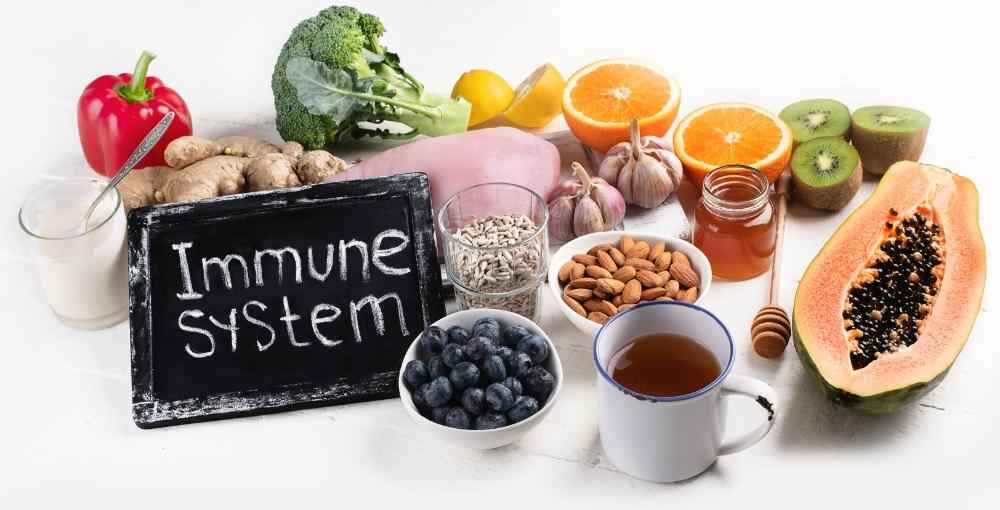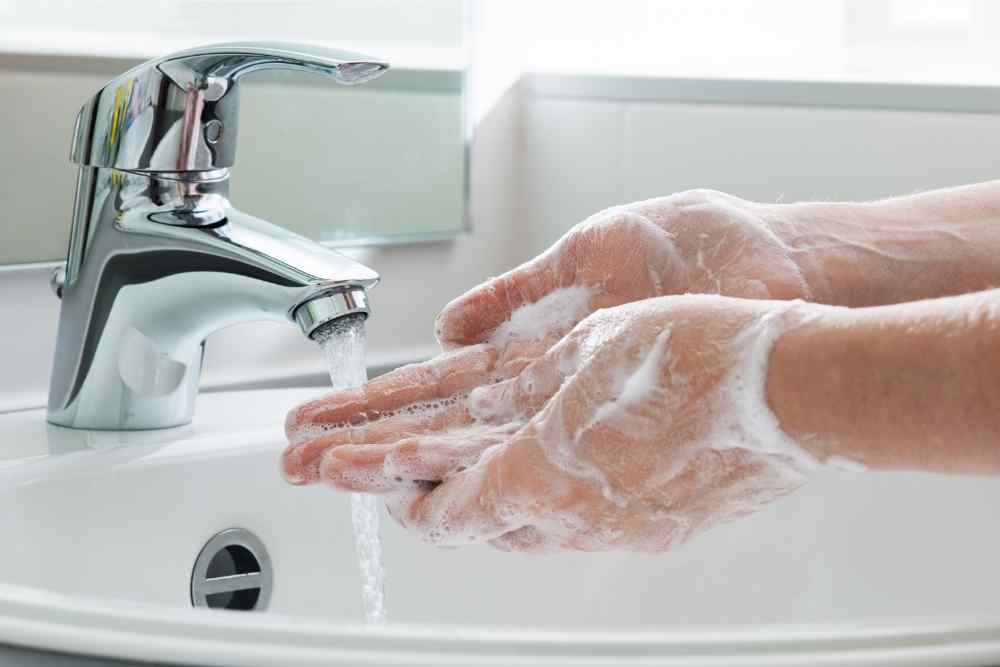How to Boost Your Immune System Naturally
The human immune system’s primary function is to prevent or reduce infections in the body. It detects and destroys anything foreign in the body, like viruses and bacteria. At its best, the immune system prevents people from getting sick even when exposed to germs. There are tons of natural ways to boost the immune system so it can function optimally. Factors such as sleep, hygiene, diet, and stress may affect how well the immune system performs; anything negatively affecting these actions can wreak havoc on how well the immune system functions.
The Human Immune System
The human immune system plays a crucial role in our survival. Without it, our bodies would be vulnerable and susceptible to infection and illness. You may not be aware of it, but bacteria, viruses, parasites, and other harmful pathogens are relentlessly working to invade our bodies at all times. Luckily we have an intact immune system to help us traverse the earth without worrying about the 60,000 types of germs we encounter daily.
The organs, cells, and chemicals that fight off microbes are the first lines of the immune system’s defense. Antibodies, white blood cells, the lymphatic system, the spleen, the bone marrow, the thymus, and the complement system encompass the core elements of the immune system. These parts are actively working together to fight off even the slightest signs of infection. Each part plays an integral role in the mechanics of a healthy immune system, and this is how:
The spleen is an organ that effectively filters out any microbes in the blood. It destroys compromised or old red blood cells. The spleen is also responsible for creating antibodies and lymphocytes–in the immune system–which further help fight disease.

Thymus
The thymus monitors the blood content in the body and produces T-lymphocytes (white blood cells).
Antibodies
Antibodies are the leading warriors in fighting microbes and the toxins they produce. They notice antigens that live on the surface of a microbe, or in the poisonous chemicals they produce.
By recognizing antigens, antibodies send signals to the immune system to destroy the foreign antigens. It gets a bit more complicated, but intrinsically several proteins, chemicals, and cells work together to attack and destroy the antigens.
Bone Marrow
The sponge-like tissue found inside your bones is bone marrow. It’s what produces oxygen-carrying red blood cells, warrior-esque white blood cells that fight infection, as well as platelets necessary for helping the blood clot.
White Blood Cells
Inside the bone marrow, you’ll find white blood cells–also part of the lymphatic system. White blood cells search the body for microbes (viruses, bacteria, fungi, and parasites) as they travel through the tissue and blood. At first sight, they signal the immune system to attack any foreign invaders.
Lymphatic System
The lymphatic system is a complex of tubes found throughout the body. It is made up of the following:
- Lymph nodes that trap microbes
- Lymph vessels or tubes that distribute the infection-fighting lymph fluid through your body’s tissues, which also contain white blood cells.
The lymphatic system helps manage the fluid levels in the body while absorbing some of the ingested fat from the intestine. It reacts to bacteria and regulates cell products that could lead to disorders and diseases, like cancer cells.
Complement System
Finally, the complement system does what its name suggests. It’s made up of proteins that complement the actions of the antibodies.
What Affects Our Immune System?
As mentioned earlier, there are a few key factors that affect our immune system. Countless studies have found that chronic stress, (some) steroids, poor diet, poor hygiene, and sleep levels largely impact the immune system’s performance. There are several layers, yet to be uncovered, that reveals all that affects the immune system. However, here are some of the most common things that might be holding back the immune system from doing its job:
- A lack of sleep
- High cortisol levels (stress left unmanaged)
- Taking certain steroids without researching them
- A diet lacking in nutrients and vitamins found in vegetables and fruits
- Not washing your hands regularly, especially after using public restrooms
Taking the necessary precautions to prevent the things mentioned above can help keep your immune system healthy.
What Are the Signs of a Weak Immune System?
When your immune system is not on point, the network of organs, cells, and tissues stop working at full potential. Problems with the immune system cause around 80 illnesses, therefore, staying on top of your health is crucial. So, what are the signs of a weak immune system? Here are a few things you should look out for:
- Fever
- Rash
- Hair loss
- Achy joints
- Headaches
- Yellow skin
- Cold hands
- Sun sensitivity
- Reappearing infections
- Problems with swallowing
- Sudden change in weight
- Tingling/numbness in your hands and feet
Take these clues lightly, as they also have links to several other reasons. If you’re worried about your immune system, it’s best to consult with a doctor about your symptoms.

Natural Ways to Boost the Immune System
There are several things you can do to ensure you’re supporting your overall wellness. Eating right and getting enough sleep are just two natural ways to boost the immune system. Because the immune system is made up of several moving parts, doing one single thing differently may not impact it at all. The immune system needs balance and harmony to function correctly.
However, that doesn’t mean trying to boost it should be ignored. Several researchers suggest doing a combination of a few healthy-living strategies. Here are a few healthy ways you can strengthen your immune system:
Diet
It should come as no surprise that a proper diet, packed with vitamins and nutrients, supports optimal health. If you are looking for a natural way to boost your immune system you may want to start with your diet.
Studies link good health and a thriving immune system to the regular ingestion of vitamins A, B6, C, E, and healthy minerals like zinc and iron. Of course, all of these can be found in vegetables and fruits. Additionally, many fruits and vegetables also contain antioxidants. Antioxidants help with the removal of potentially damaging oxidizing agents. Here are just some immune-boosting foods to consider adding to your diet:
- Citrus fruits
- Broccoli
- Garlic
- Spinach
- Ginger
- Almonds
- Turmeric
- Green Tea
- Blueberries
Probiotics
Most of us know that not all bacteria are bad. Probiotics are healthy bacteria found in certain foods like yogurt, kefir, kombucha, sauerkraut, and more. Consuming probiotics protect your gut from the effects of inflammation. Probiotics strengthen gut health thus promoting a healthy immune system. A healthy GI tract lowers the chance of harmful bacteria entering the bloodstream.
Restrict Alcohol Intake
Another diet change you can make to improve your immune system is cutting down or eliminating alcohol consumption. Research has revealed that excessive drinking reduces the number and functionality of 3 crucial cells of the immune system (macrophages, T, and C cells). Alcohol also negatively affects the interaction of gut microbes and the immune system. It can deteriorate your gut barrier resulting in excess bacteria entering your bloodstream.
Avoid Tobacco
Tobacco consumption will also diminish the strength of your immune system. Tobacco users are more prone to infections like pneumonia and influenza. Plus, when smokers get sick their illnesses tend to stick around longer. Overall they have lower levels of protective antioxidants in their blood. Avoiding tobacco will help keep your immune system healthy. If you are a smoker, here are some similar smokable non-nicotine, not-tobacco CBD products that may help you put the cigarettes down.
Browse All Cheef CBD Products
Physical Activity
A little physical activity can go a long way for the immune system. Doing so may assist with flushing bacteria from the lungs and airways which can lower susceptibility to airborne illnesses. Exercise promotes white blood cells to circulate more rapidly to speed up the detection of illnesses. The slight rise in body temperature from exercising may prevent bacteria growth and help fight infection better. However, do not overexert yourself, too much exercise may actually decrease immune strength.
Stress
Stress produces cortisol in the body, consequently, this inhibits the immune system from working correctly. When left unmanaged, stress can also lead to poor sleeping patterns, unstable moods, and unhealthy diet choices. All these effects of stress can negatively impact the immune system. Exercise, good sleep, and even therapy are great ways to manage and reduce stress.
Sleep
You might not have believed your parents when you were eight and full of energy, but they were right about the importance of sleep. Our sleep-wake habits impact our circadian rhythms, which influence the immune system. Research shows that during sleep, our bodies have decreased levels of cortisol (stress), which might subdue regular immune function.
Do you have trouble sleeping? Does stress keep you up at night? Read this article next to see how you can how to get more deep sleep.
Hygiene
Surprisingly enough, people overestimate their hygiene; the most fundamental part of good hygiene included: hand washing. Even those who often wash their hands might not be doing it correctly. The Centers for Disease Control urges at least 15 seconds of scrubbing soapy hands, that equals to singing or humming the ‘Happy Birthday’ song twice. Showering regularly, washing hands after using public restrooms, and also washing your hands throughout the day can help significantly.

Sunlight
UV light from the sun initiates the production of vitamin D. In turn, this promotes a healthy immune system. Furthermore, recent research suggests that blue light (produced by the sun and screen devices) may drive T-cells to become more active resulting in quicker identification of infectious invaders.
Natural Vitamins & Supplements to Boost the Immune System
There are tons of products available that claim to boost or support the immune system. Most of these products actually support health which seems to be the main goal in strengthening your immune defense. With the vast amount of cells in our immune system, each approaching microbes differently, it’s hard to say which cells you should boost, and how much.
There are natural vitamins and supplements linking themselves to the immune system found on the shelves. And, some of them have properties that may improve your overall health and wellness. As we know now, good health usually equates to a healthy immune system. With that said, incorporating certain herbs and supplements might not directly or immediately impact your immune system, but it may help to provide the environment your immune system needs to flourish.
Here are a few extra things you can add to your daily routine that will help support your health and ultimately your immune system:
Raw Foods
Vegetables, fruits, nuts, and seeds in their all-natural states are packed with the most amount of nutrients that are essential for a healthy immune system. Eating more of these daily can help support your entire body.
A, B, C, D, and E
Vitamins A, B6, C, D, and E can all strengthen your immune system. Of course, these can all be found in the raw foods mentioned above.
Herbs and Supplements
If you’re not a fan of eating fruits and vegetables every day, you can take multivitamin supplements for the vitamins mentioned above. Herbs like Elderberry, Echinacea, AHCC, Astragalus, and Andrographis can help once the immune system has taken a slight hit. These herbs may help decrease the severity of illness and the duration.
Final Thoughts on Natural Ways to Boost the Immune System
Many of the things we discussed are things a lot of us already practice. However, not everyone combines these efforts, which may be why they aren’t as healthy as they can be. Merely tweaking your routines and adding in the mentioned tips to naturally boost or support your immune system can present remarkable results. A lot of these actions can help reduce the toxins in your body while providing the nutrients needed for overall optimal health. Taking these tips into consideration and action will not only help your immune system, but it can also help you stay healthy long term.
Interested about CBD & the immune system? Read this next: Can CBD Boost the Immune System?





